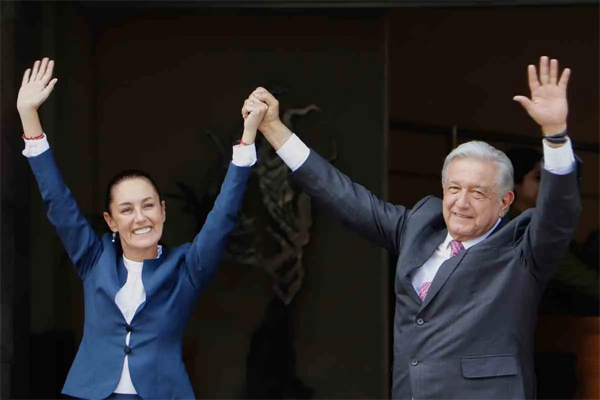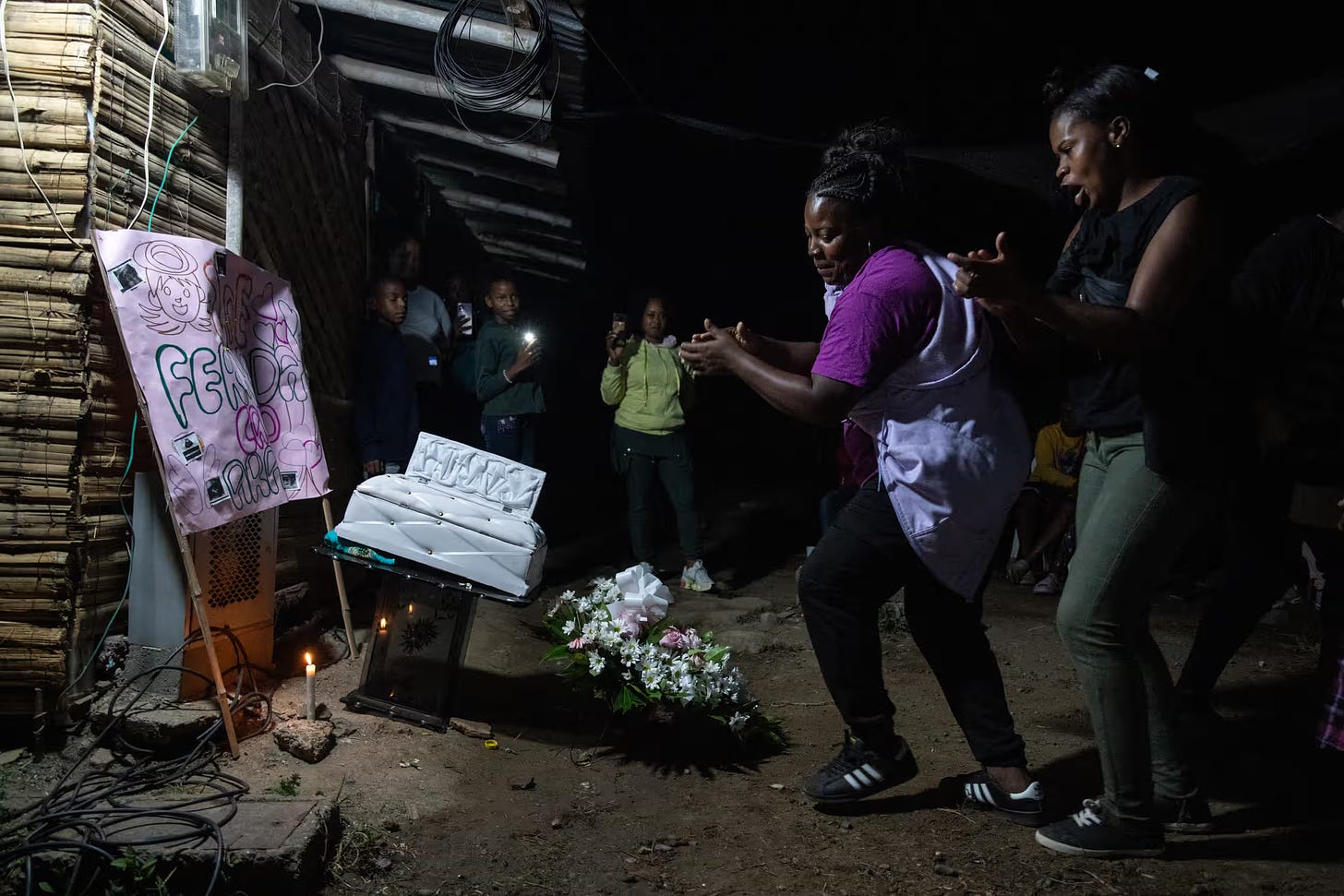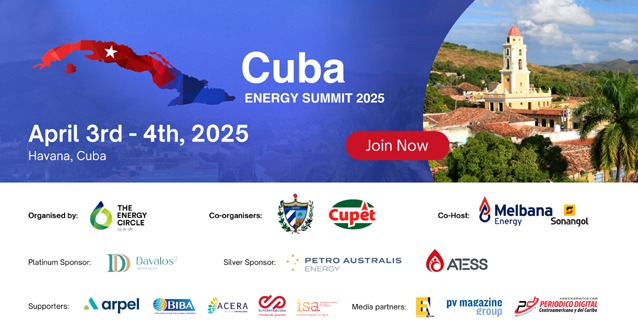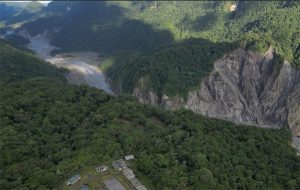
Latin America Daily Briefing
Mexican president-elect Claudia Sheinbaum said she will encourage broad discussions over constitutional reforms advocated by her political mentor, President Andrés Manuel López Obrador. The most controversial is a judicial overhaul that would make Supreme Court judges an electoral position, a proposal that has spooked markets as investors fear an accelerated reform process after Sheinbaum’s historic, landslide electoral victory.
“In the case of the judicial reform, (discussion) should be through the bar association, professors of law, the ministers and magistrates themselves,” Sheinbaum said.
She agreed to advance with the reforms, aiming to pass them in September, when the new Congress will be sworn in but before Sheinbaum takes office in October, according to Animal Político. The ruling Morena party will have a super majority in the lower chamber of Congress in the new term, allowing it to unilaterally pass constitutional reform — and will require only a few votes to reach two-thirds in the Senate.
Sheinbaum spoke at a press conference alongside AMLO yesterday, and said she did not believe the proposed reforms would impact the peso. But even as she spoke, the peso weakened by nearly 2% in international trading, report Reuters.
More Mexico
- Anti-avocado vigilante groups in Mexico’s Michoacán state have pushed back against the environmentally damaging avocado industry, which often is accompanied by criminal organizations. The resistance has formed an archipelago of radical environmental resistance,” reports the Guardian. “While each town has its own method of implementation, the charter remains basically the same: a democratically elected council, a militarised commitment to environmental protection, and no political parties or avocados.”

Regional Relations
- Brazilian President Luiz Inácio Lula da Silva defended his proposal for peace talks involving both Russia and Ukraine in a call with his Russian counterpart Vladimir Putin, according Brazil’s government. (Reuters)
- A Latin America-focused investment conference in Rio de Janeiro this week, backed by Saudi Arabia’s nearly $1 trillion sovereign Public Investment Fund, will showcase official efforts at greater cooperation between the two countries, reports Bloomberg.
- A Russian naval flotilla is due to dock in Cuba tomorrow. Russia is hoping for a diplomatic boost for its war in Ukraine, while Cuba, in the midst of intense economic malaise, is looking for all the support it can get, reports the Financial Times. (See yesterday’s briefs.)
- Russian foreign minister Sergei Lavrov and his Venezuelan counterpart, Yvan Gil, signed an agreement to collaborate against economic sanctions. (Telesur)
- Argentine President Javier Milei is pitching to make Argentina “the world’s fourth AI hub”, promising hands-off regulation to lure US tech bosses, reports the Financial Times.
Guatemala
- Guatemalan President Bernardo Arévalo announced new social security payments for poor families starting in July to mitigate high costs of basic supplies in the midst of inflation and drought, reports the Associated Press.
- José Domingo, a Guatemalan lawyer who worked closely with organizations representing farmworkers and Indigenous groups, was killed last week in an apparent ambush. Land ownership issues are often contentious in rural Guatemala where Indigenous peoples and farmworkers struggle to obtain title to the land they live on and frequently face illegal evictions, reports the Associated Press.
Colombia
- A U.S. jury found Chiquita Brands liable for financing Colombian paramilitary group United Self-Defense Forces of Colombia (AUC), a US-designated terrorist organization known for its human rights abuses, according to EarthRights, an NGO that helped build the case. (AFP)
- Two cases of female genital mutilation in Colombia have put a spotlight on a practise carried out by certain Indigenous groups — though some Embera activists have called for eradication and say it is an imported tradition, reports El País.
Venezuela
- Venezuelan President Nicolás Maduro is willing to sign an agreement to recognize the results of next month’s presidential election, according to Bloomberg.
- Inmates in at least 16 Venezuelan prisons are carrying out a hunger strike in protest of procedural delays. (Infobae)
Haiti
- Haitian Prime Minister Garry Conille condemned the gang killings of three police officers on a patrol in a part of Port-au-Prince controlled by gang leader Jimmy “Barbeque” Cherizier, yesterday. (Reuters)
- Gang violence in Haiti has deepened malnutrition in the country — nearly half of all Haitians are suffering from acute food insecurity, and the World Food Programme says it may not be able to continue life-saving aid, due to a massive deficit in funding, reports France 24.
Brazil
- Brazilian researchers using AI and drone footage challenged supporters’ estimates of participants at a rally in favor of former President Jair Bolsonaro — the method “could be a game changer for mitigating inflated attendance numbers, analysts told Rest of World.”
- Argentine-Brazilian actor Juan Darthés was sentenced to six years in prison in Brazil for sexually assaulting his former colleague, Argentine actress Thelma Fardin, in 2009. (Buenos Aires Times)
Peru
- Peru’s Justice Department said it has extended by 14 months the pretrial detention of jailed former President Pedro Castillo, who is charged with rebellion, abuse of authority and disrupting the peace. (Reuters)
Cuba
- The gig delivery economy — with the usual attendant concerns regarding workers’ rights — has disembarked in Cuba, reports EFE.
Culture Corner
- Guapo’y is a “shattering documentary about inhabitants of the notorious Emboscada prison under Alfredo Stroessner’s dictatorship is a warning against a repeat.” — Guardian
- Photographer Jair F Coll discusses his coverage of a Colombian palenque, a community founded by enslaved people who fled the country’s haciendas before slavery was abolished in the 1850s. He photographed a bunde, a ritual in which a child up to the age of 10 is both mourned and celebrated – the tradition dates back to a time when the passing of children was seen as a release from the suffering of slavery. — Guardian

Jordana Timerman / Latin America Daily Briefing
latinamericadailybriefing.blogspot 06 11 2024












